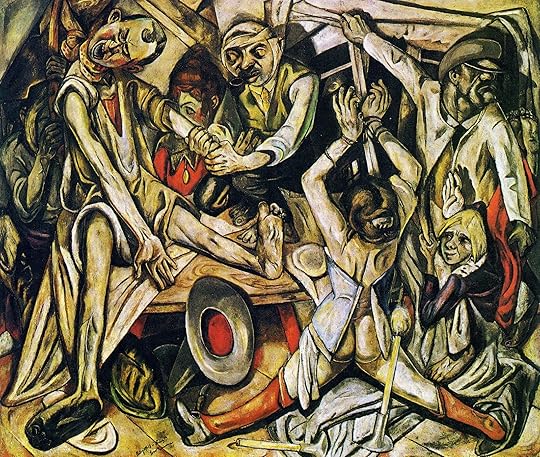What do you think?
Rate this book


434 pages, Paperback
First published January 1, 1956


Būtis slinko ramia vaga, organiškai vystėsi, kai viskas nuo pat vaikystės buvo tarpusavyje susiję. Karas tatai iš esmės pakeitė; nuo 1914 metų gyvename čia vieno, čia antro ar trečio gyvenimo skutais; jie nesusiję tarpusavyje, ir mes nepajėgiame jų sulipdyti. <...> mums jie visi susipynę: karo nutraukta vaikystė, bado metai ir apkvaitimo metai, apkasų metai ir gyvenimo geismo metai, – visi jie paliko pėdsakų, tebeaitrinančių širdį. Ne taip paprasta jais nusikratyti. Visados netikėtai išplaukia į paviršių nesuderinamai priešingi dalykai: vaikystės dangus ir žudymo įgūdžiai, prarasta jaunystė ir ankstyvo pažinimo cinizmas.
Susuku vamzdeliu dešimties markių banknotą, prikišu prie žarijų ir užsidegu juo cigarą.
Visi matėm daugybę negyvėlių fronte, žinom, kad du su viršum milijonų mūsiškių beprasmiškai paguldė galvas – tai kodėl taip jaudinamės dėl vieno žmogaus mirties, o du milijonus jau baigiam pamiršti? Bet, matyt, todėl, kad pavienė mirtis visada yra tikra mirtis, o dviejų milijonų mirtis – tik statistika.
Karas, kurio 1918 metais nekentė beveik visi kareiviai, gyviems likusiems pamažėle tapo didžiausiu gyvenimo nuotykiu. Jie sugrįžo į kasdienybę, kuri visiems atrodė lyg tikras rojus, kol vyrai gulėjo apkasuose ir keikė karą. Dabar ji vėl atvirto kasdienybe, su savo rūpesčiais ir nusivylimais, o karas pamažėle sušvito virš horizonto, tolimas, pergyventas ir dėl to, be jų valios ir beveik be jokių pastangų, pasidarė ne toks baisus, pagražintas ir melu apipintas. Masinės žudynės tapo nuotykiu, iš kurio pavyko išnešti sveiką kailį.
Nemenkinkite bažnyčios išminties! Ji – vienintelė diktatūra, nenuversta du tūkstančius metų.
– Tu klausinėji kaip vaikas.
– O kaip klausinėja vaikai?
– Taip kaip tu. Jie vis klausinėja ir klausinėja ir greitai prieina tokį tašką, kai suaugusieji nežino, ką atsakyti, ir sutrinka arba pradeda širsti.
– O kodėl jie pradeda širsti?
– Jie staiga pasijunta esą pilni kraupaus melo ir nenori, kad jiems tai būtų primenama.
– Todėl mes ir pralaimėjom karą. Per intelektualų ištižimą ir per žydus.
– Ir per dviratininkus.
– Kuo čia dėti dviratininkai?
– O kuo čia dėti žydai?